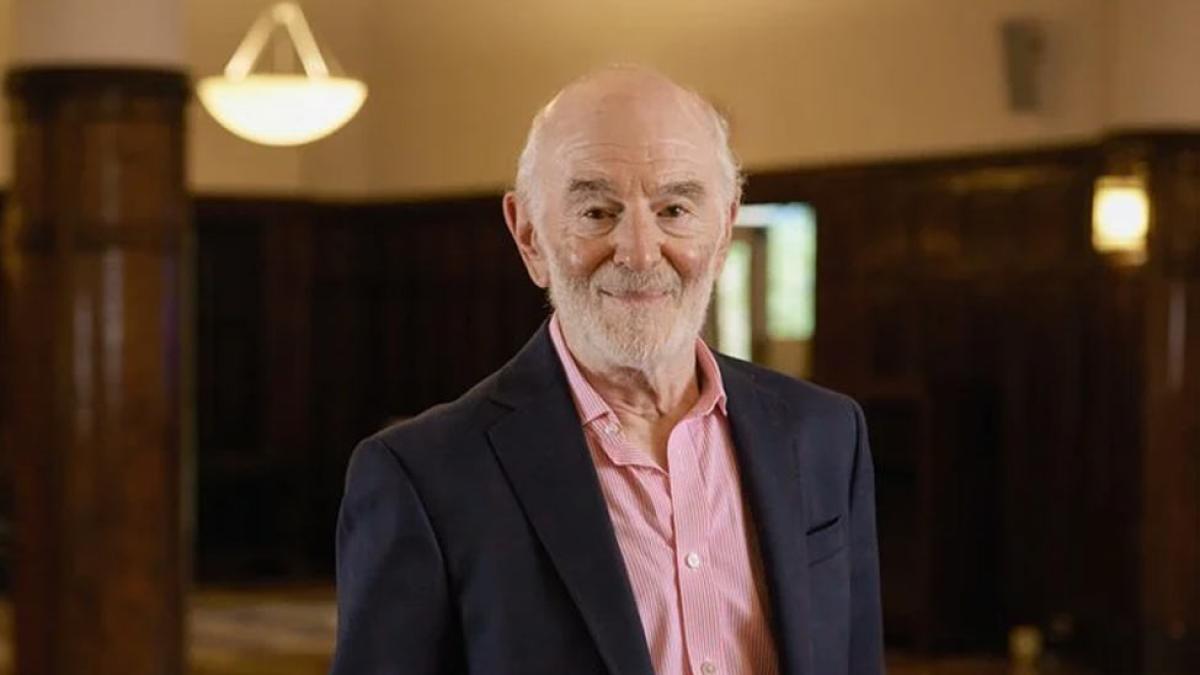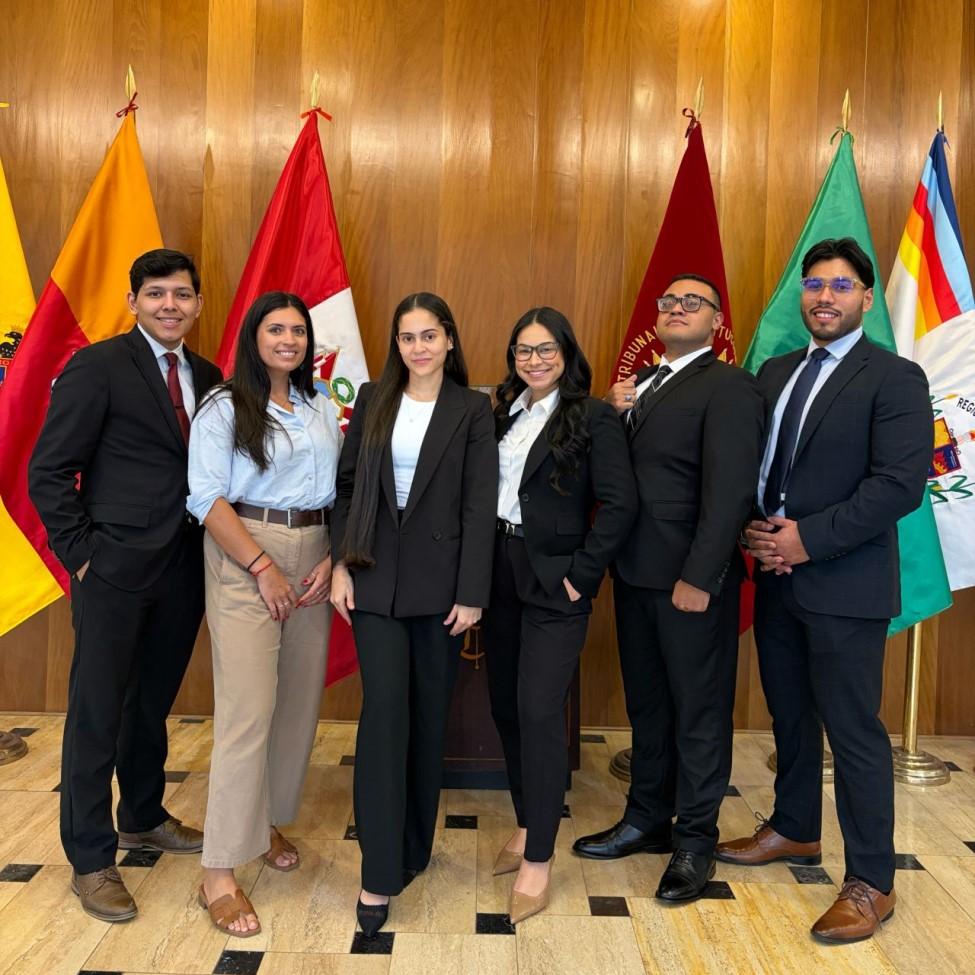
Pace University President Named AJC-Hosted Fulbright Specialist to Lead Transatlantic Effort Against Rising Antisemitism
The American Jewish Committee reports Pace President Marvin Krislov has begun work as a Fulbright Specialist hosted by AJC Paris, leading a joint U.S.–France initiative to address rising antisemitism and strengthen democratic resilience in higher education. The effort brings together academic, government, and civic leaders to identify policy solutions aimed at preventing antisemitism from becoming normalized, particularly among young people.
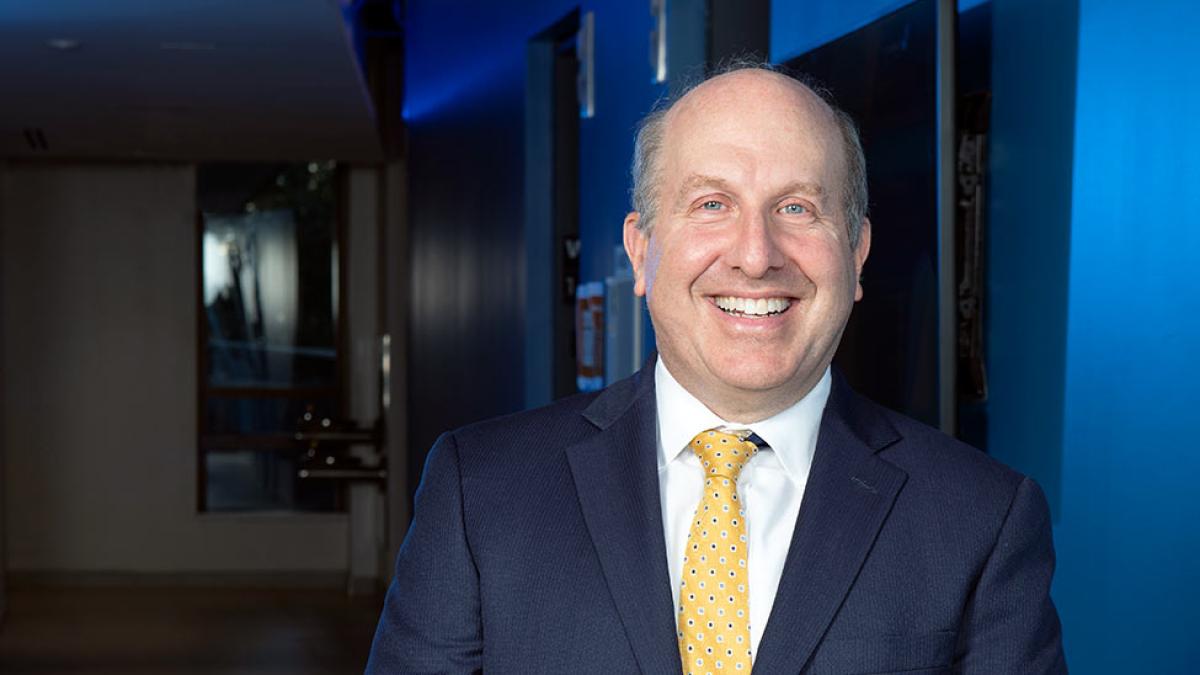
Metro North And MTA Win Summary Judgement In Lawsuit Filed By Local Residents Hoping To Abate Train Noise From The Croton-Harmon Yards.
Law Professor Todd Ommen provides a legal analysis to The Croton Chronicle following a judge’s dismissal of a lawsuit seeking to limit nighttime train noise at the Croton-Harmon rail yard. Professor Ommen says his team is disappointed with the ruling and plans to appeal.
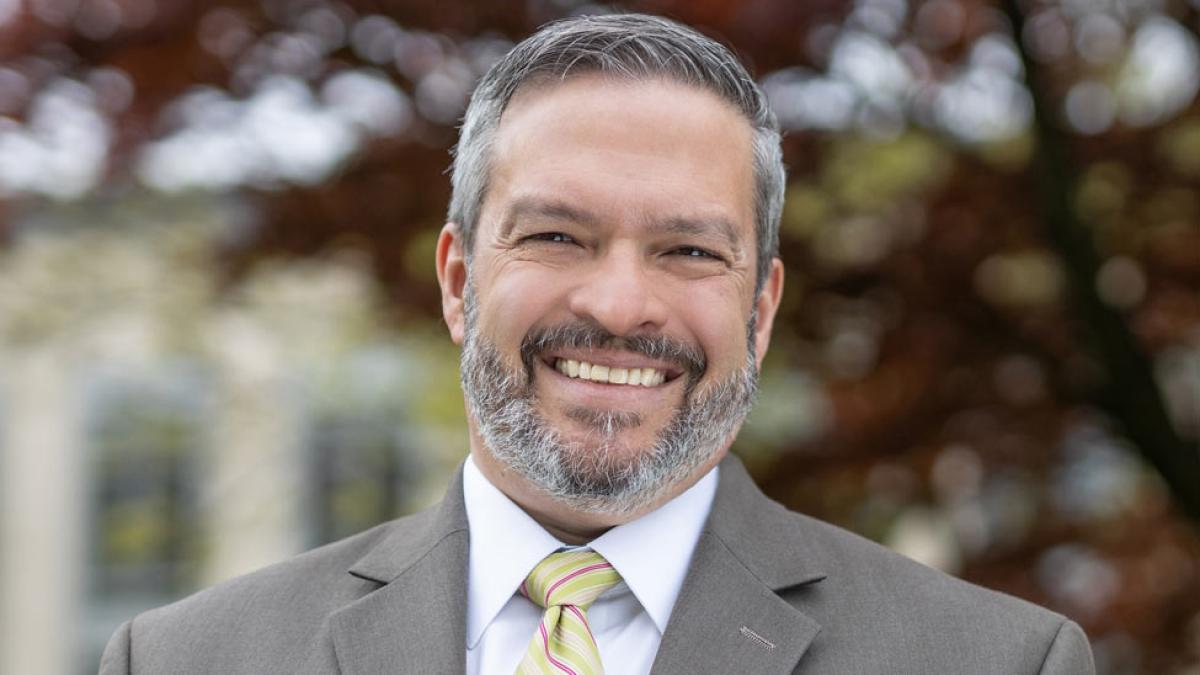
Open-Access ‘Research Methods For A Better World’ Course Materials
The Philadelphia Higher Education Network for Neighborhood Development (PHENND) highlights Dyson Professor Anne Toomey, who has released open-access course materials for Research Methods for a Better World. The materials—developed for a course emphasizing real-world impact from the start of the research process—include a full syllabus, lectures, activities, and evaluations, expanding access to applied research training.
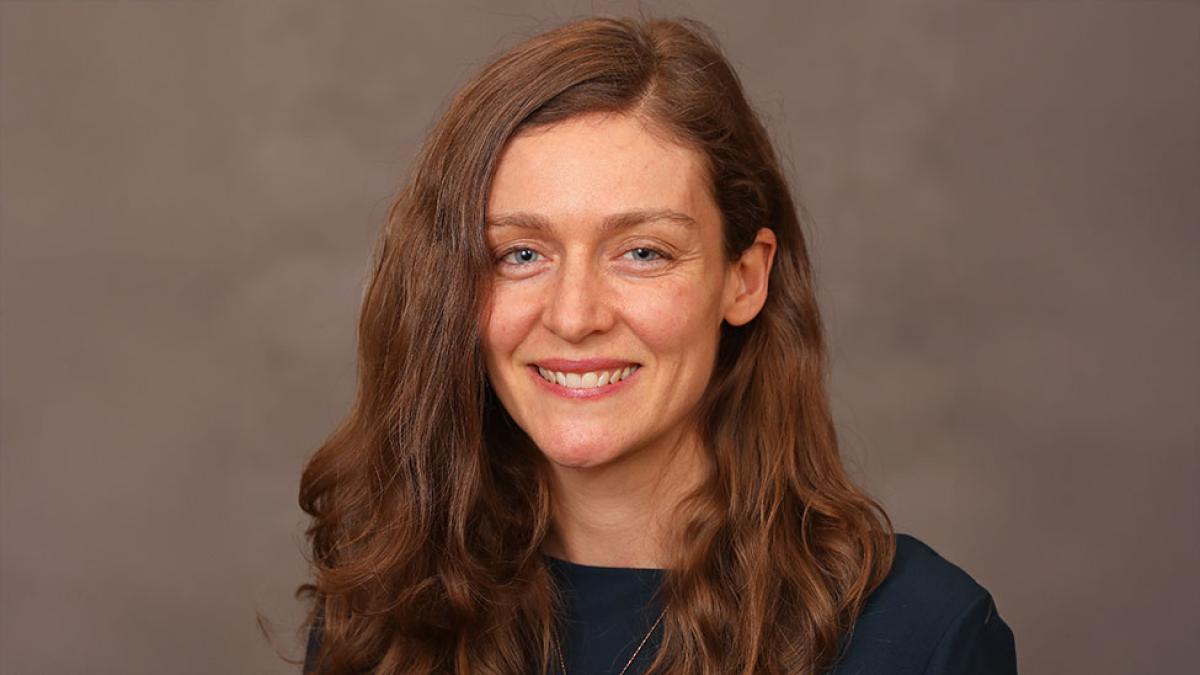
Elisabeth Haub School of Law at Pace University Welcomes Four Leading Legal Professionals to Its Board of Visitors
The Elisabeth Haub School of Law at Pace University is pleased to announce that four new members have joined its Board of Visitors. All four members, Jerome Abelman’93, Westchester District Attorney Susan Cacace ’89, Lauren Enea ’16, and Sapna Palla ’98, are distinguished Pace Haub Law alumni.
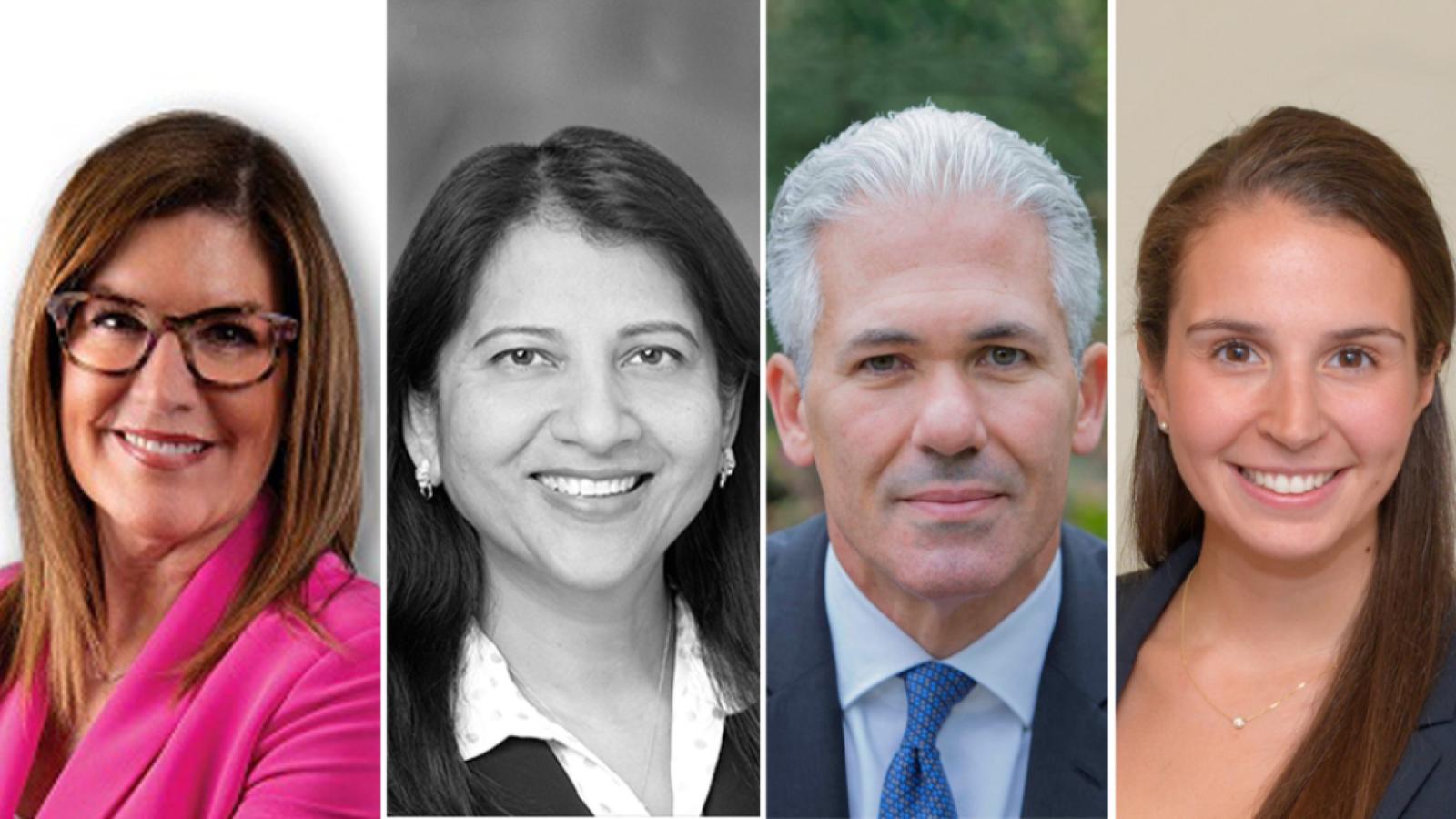
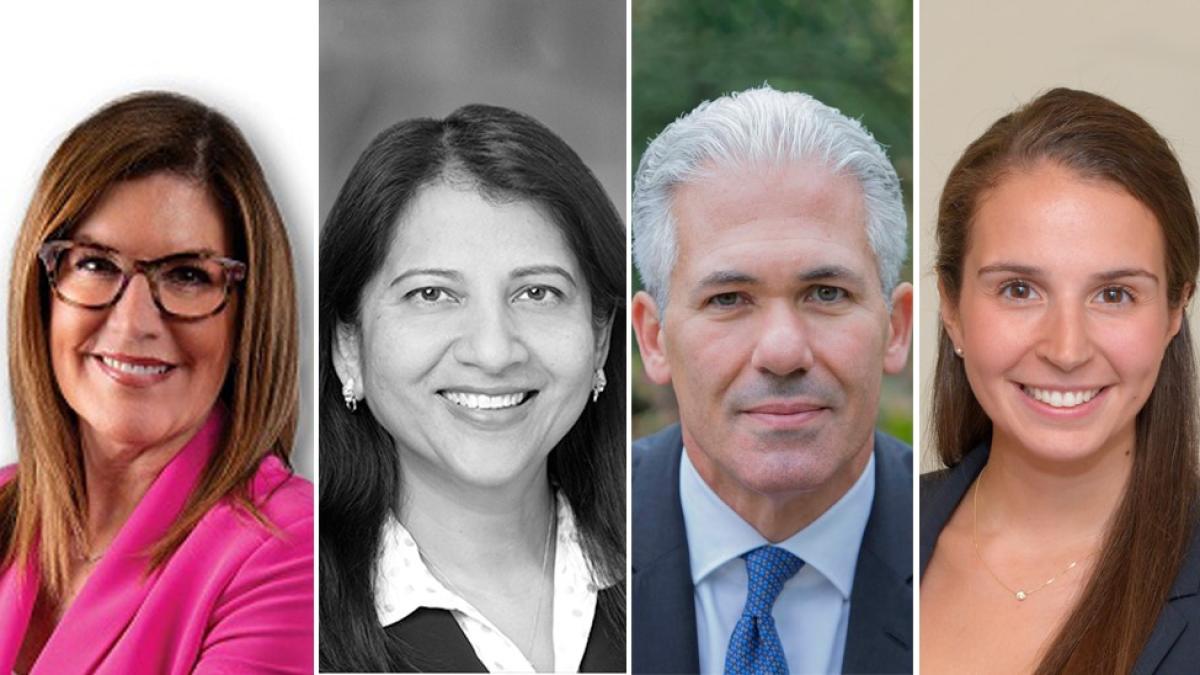
The Elisabeth Haub School of Law at Pace University is pleased to announce that four new members have joined its Board of Visitors. All four members, Jerome Abelman’93, Westchester District Attorney Susan Cacace ’89, Lauren Enea ’16, and Sapna Palla ’98, are distinguished Pace Haub Law alumni.
“We are honored to welcome four exceptional alumni and legal professionals to the Board of Visitors,” said Dean Horace E. Anderson Jr. “Jerry, Susan, Lauren, and Sapna each bring a deep commitment to justice and a strong belief in the power of legal education. Their insight and leadership will help guide Pace Haub Law in the years to come and their unique expertise will be invaluable as we prepare the next generation of legal advocates.”
Sapna Palla ’98 is currently a partner with White & Case. Sapna concentrates her practice on Intellectual Property litigation matters and has spent over two decades representing clients in the Life Sciences and Technology industries in high-stakes patent, trademark, copyright, and complex commercial matters, including successfully litigating disputes in federal and state courts in a range of jurisdictions. She also has extensive experience with alternative dispute resolution, including arbitration and mediation. In addition, Sapna counsels and represents a variety of US and international clients regarding US intellectual property rights. Notably, she also counsels clients about patent law in Asia, including China and India. Sapna is an inaugural member of Judge Janet Bond Arterton's Intellectual Property American Inns of Court. She has also served as adjunct professor at the Elisabeth Haub School of Law at Pace University. She received her JD from Pace Haub Law and her undergraduate degree from Pace University as well. Sapna has lived and studied in both India and Tanzania and she is fluent in Hindi and Marathi and conversant in French.
The Honorable Susan Cacace ‘89 serves as the District Attorney of Westchester County, where her leadership is defined by her unwavering commitment to justice, public safety and community well-being. Judge Cacace began her distinguished legal career as an Assistant District Attorney in Westchester County. In this role, she managed numerous felony trials and secured indictments in over 500 cases. She also made history by leading Westchester’s first dedicated animal cruelty unit, advocating for the welfare of voiceless victims and setting a precedent for innovative prosecution methods. Following nearly 15 years as a prosecutor, Judge Cacace transitioned briefly into private practice alongside her husband before being elected as a Westchester County Court Judge in 2005. Over nearly two decades on the bench, she presided over significant felony cases and established herself as a leader in the specialized courts. Notably, she presided over the county’s first Driving While Intoxicated (DWI) part and became the longest-serving presiding judge of the Sex Offense part in Westchester County history. Judge Cacace earned her JD from Pace Haub Law and her undergraduate degree from Pace University. She remains an active member of several professional organizations, including the Yonkers Lawyers Association, the Columbian Lawyers Association, the Westchester County Bar Association and the New York State Bar Association. Additionally, she supports community initiatives through her involvement with the Yonkers Lions Club and the Enrico Fermi Scholarship Fund.
Jerome (“Jerry”) Abelman ’93 was appointed as Group General Counsel and Director, Legal and External Affairs in May 2015 after joining the British American Tobacco (BAT) Management Board as Director, Corporate and Regulatory Affairs in January 2015. After 11 years as General Counsel, Jerry retired at the end of 2025. In his capacity as General Counsel, Jerry provided leadership to and oversight of a global department of approximately 1,000 lawyers and security professionals in over 100 countries. Prior to his appointment to the Management Board, Jerry held various roles including Regional General Counsel, Asia-Pacific in Hong Kong and Area General Counsel, Australasia, in Sydney. Before joining BAT, Jerry was with the law firm Chadborne & Parke LLP in New York and London. Jerry also served as a Non-Executive Director on the Board of Reynolds American, Inc. from February 2016 until July 2017 when it was acquired by the BAT Group. Jerry received his JD from Pace Haub Law and his undergraduate degree from Tulane University.
Lauren C. Enea ’16 is a partner at Enea, Scanlan & Sirignano, LLP. She concentrates her practice on Wills, Trusts and Estates, Medicaid Planning, Special Needs Planning and Probate/Estate Administration. In addition to her client successes, Ms. Enea plays a key role in the firm’s growth and recently led Enea, Scanlan & Sirignano, LLP’s expansion into a second office in Somers, NY. An active member of the local bar associations, Ms. Enea was appointed to the Executive Committee of the Westchester County Bar Association (WCBA) Trusts and Estates Section. She is also the co-chair of the WCBA New Lawyers Section, a member of the Board of Directors of the Columbian Lawyers Association of Westchester County, and chair of the New York State Bar Association (NYSBA) Elder Law and Special Needs Section Publications Committee and co-editor of the NYSBA Elder Law and Special Needs Section Journal. Ms. Enea was awarded the Outstanding New Lawyer Award in 2020 by the Westchester County Bar Association and the 2025 Shining Star Award from the Elisabeth Haub School of Law at Pace University. She was also named to the 2021–2025 Super Lawyers Rising Stars list and the 2023–2026 Best Lawyers Ones to Watch list. Ms. Enea was recognized at Westfair Communications' 2019 Millennial Awards and as a 2022 Westchester Wunderkin by 914INC. She serves on the Pace Women’s Justice Center's Friends of Gail Advisory Board and is a board member of the Italian American Forum and Opengate Inc., a nonprofit dedicated to empowering people with disabilities through compassionate care, meaningful support, and opportunities to thrive. She received her JD from Pace Haub Law and her undergraduate degree from Quinnipiac University.
The Board of Visitors furthers the interests of the Law School by involving alumni and friends in significant issues of concern to the School, and by building a sense of community that fosters pride and participation. The Board is comprised of leaders in the legal community who serve as advisors to the Dean on a variety of issues involving legal education. The Board is also dedicated to fostering a strong interest in the mission of the Law School by helping to recruit outstanding students, hiring graduates, and encouraging financial support from public and private sources. The Board is currently co-chaired by Alfred E. Donnellan '81, Managing Partner, DelBello Donnellan Weingarten Wise & Wiederkehr, LLP and Kathleen Donelli ’85, Partner, Goldschmidt & Genovese, LLP.
Pace Haub Law Student Advocates Reach Semifinals in the VI Moot de Derecho Ambiental Científica in Lima, Peru
A team of student advocates from the Elisabeth Haub School of Law at Pace University reached the semifinals of the VI Moot de Derecho Ambiental Científica, a fully Spanish-language international environmental law competition hosted by the Universidad Científica del Sur in Lima, Peru. Pace Haub Law was the first American law school to place as a finalist in the competition, finishing third overall in the written submissions and fifth overall in the Competition.
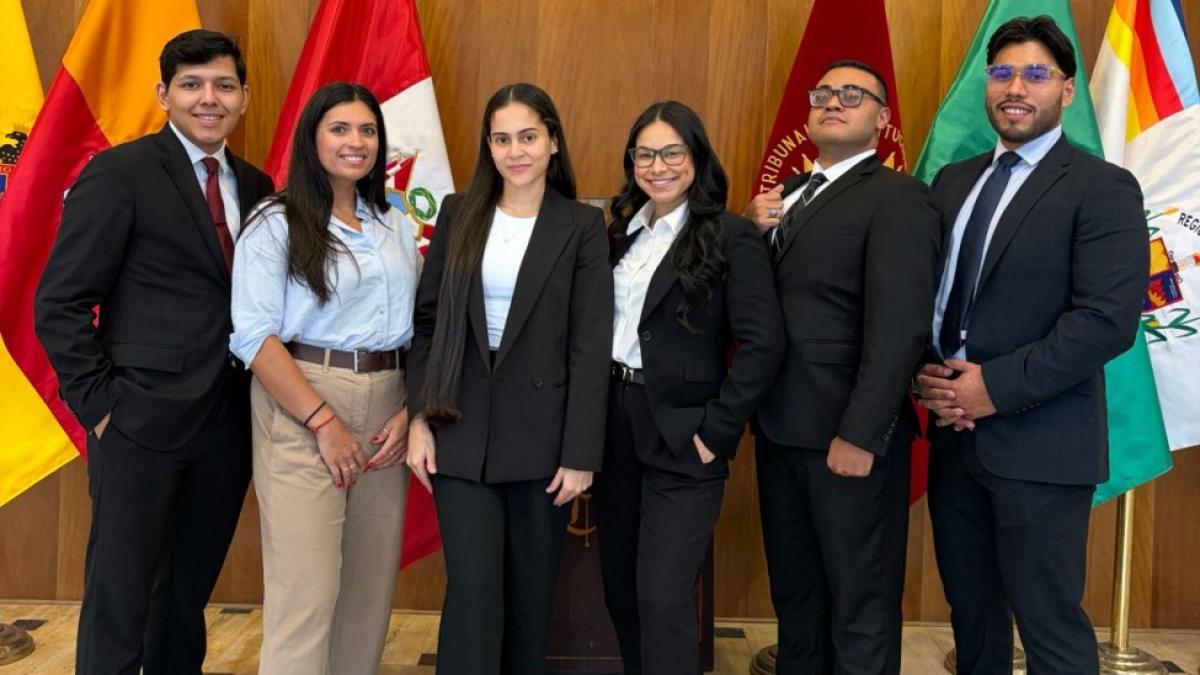

A team of student advocates from the Elisabeth Haub School of Law at Pace University reached the semifinals of the VI Moot de Derecho Ambiental Científica, a fully Spanish-language international environmental law competition hosted by the Universidad Científica del Sur in Lima, Peru. Pace Haub Law was the first American law school to place as a finalist in the competition, finishing third overall in the written submissions and fifth overall in the Competition.
The student team included Nicholas Caicedo, Endy Abreu, Sorangel Liriano, and Matthew Alexander Corrales and was coached by Pace Haub Law Alumnus Edgar Aguilar Ramirez. The team competed against international law schools in a simulated proceeding before the Tribunal Interamericano de Justicia Ambiental, held at the Tribunal Constitucional del Perú, one of the country’s highest constitutional courts.
Throughout the competition, the team drafted briefs and developed oral arguments on both sides of a complex environmental law problem, addressing issues including the rights of nature, glacier protection, and state regulatory authority in environmental governance. All advocacy was conducted in Spanish and required careful attention to comparative legal reasoning and institutional context.
Pace Haub Law student advocate Nicholas Caicedo noted that the work went beyond traditional advocacy skills. “Working on these issues in Spanish required attention not only to doctrine, but also to comparative reasoning,” he shared. “It shaped how I approach legal analysis through language, institutional context, and comparative systems.”
Sorangel Liriano, Pace Haub Law student advocate, reflected on the experience’s global impact. “Environmental law is a shared international conversation. Advocating before an international tribunal in my mother tongue on urgent climate issues was both a challenge and a privilege. We built deep team camaraderie and learned alongside students from around the world, leaving Lima not only stronger advocates, but part of a growing international community committed to environmental justice.”
Louis Fasulo, Director of Advocacy Programs and Professor of Trial Practice at Pace Haub Law, emphasized the significance of the team’s achievement. “This result reflects the strength of our advocacy training and our students’ ability to operate at the highest level in international and comparative legal settings,” said Professor Fasulo. “Reaching the semifinals in a fully Spanish-language competition in the setting of a constitutional court abroad is an extraordinary accomplishment and speaks to the rigor, preparation, and professionalism of this team.”
For the students, the experience reinforced a shared commitment to international environmental law and public interest advocacy. “Representing Pace Haub Law in this setting was both a significant and meaningful professional milestone, and one that affirmed our interest in international law, environmental governance, and compliance,” shared Nicholas.
Cultivating Wellbeing: Inside Pace Haub Law’s Wellness Coaching Workshop
At the Elisabeth Haub School of Law at Pace University, the eight-Week Group Wellness Coaching Workshop represents a sustained, skills-based approach to student wellbeing where wellness is a key component of a law students’ professional formation.
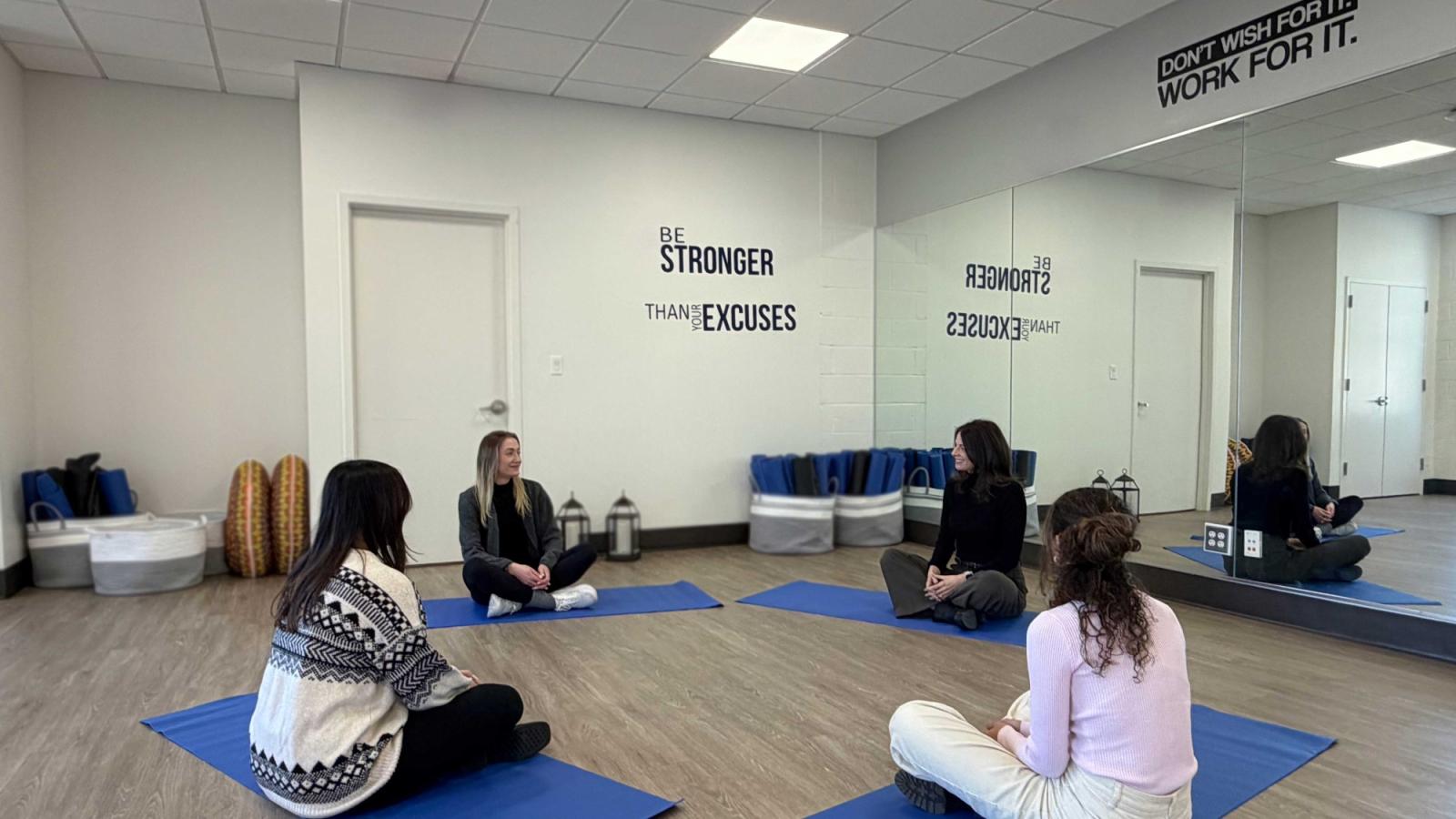
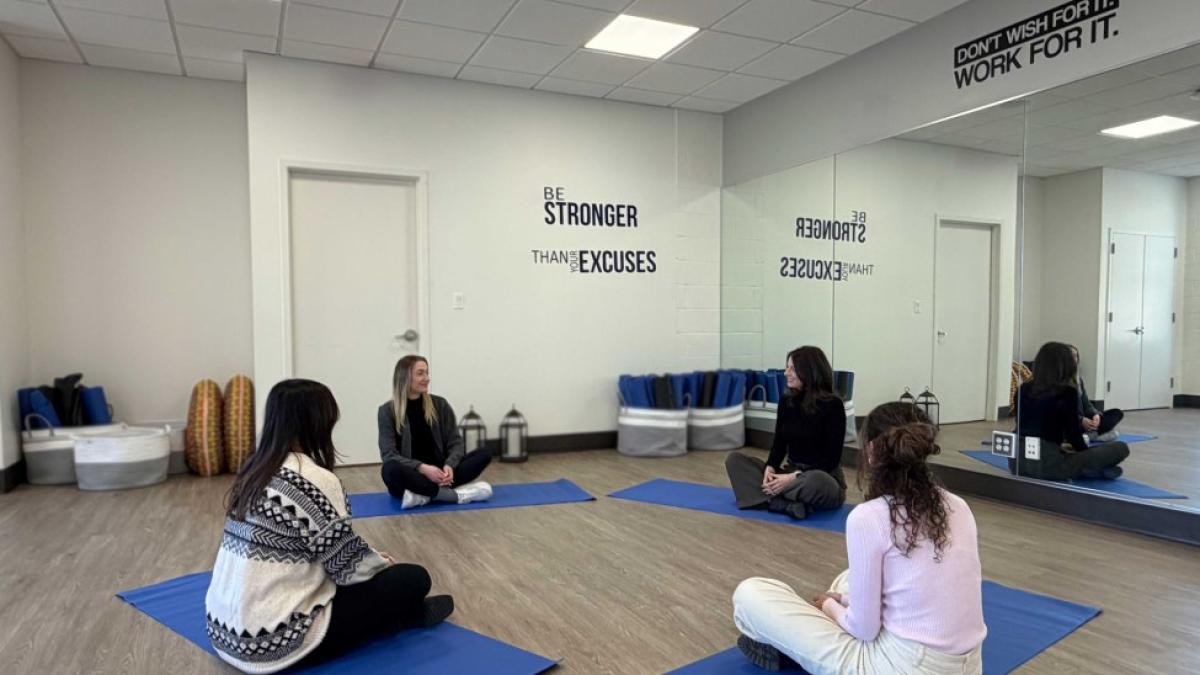
At the Elisabeth Haub School of Law at Pace University, the eight-Week Group Wellness Coaching Workshop represents a sustained, skills-based approach to student wellbeing where wellness is a key component of a law students’ professional formation. Launched in 2023 and offered each semester, the Wellness Coaching Workshop is open to all Pace Haub Law students, with priority given to 3Ls preparing to enter professional practice. Through guided reflection, goal-setting, and peer collaboration, the program equips students with practical tools to navigate the demands of law school and the transition into the legal profession.
The Workshop was developed through a partnership between Dean for Students Angie D’Agostino and Adjunct Professor Lauren H. Breslow, a nationally certified Health and Wellness Coach. Funded by the Dean of Students Office, the program was intentionally designed to move beyond short-term wellness initiatives and toward a model that supports lasting change.
“Our aim was to create something deeper and more durable than a one-time program,” Dean D’Agostino explains. “We wanted students to leave with an awareness of their own personal wellbeing and concrete skills and tools they can carry with them not only through law school, but into their professional lives.”
Grounded in evidence-based behavior change strategies, the Workshop emphasizes intentional reflection, individualized goal-setting, and personal accountability. The program encourages students to define wellbeing on their own terms.
“Wellness in this context isn’t about achieving perfection,” Adjunct Professor Lauren Breslow, who leads the Workshop, explains. “It’s about cultivating self-compassion, making intentional choices, and building habits that support focus, motivation, and resilience over time.”
Wellness in this context isn’t about achieving perfection. It’s about cultivating self-compassion, making intentional choices, and building habits that support focus, motivation, and resilience over time.
—Adjunct Professor Lauren Breslow
Research and experience across legal education show that even the most capable law students often report, by midyear, feeling exhausted, anxious, and unsure how to sustain their wellbeing. Their experience reflects a broader challenge in the legal profession: how to cultivate excellence without sacrificing wellbeing.
Professor Breslow notes that, “research and experience across law schools consistently show that even high-performing students often experience significant stress, anxiety, and exhaustion and are unsure how to sustain their wellbeing.” In response, the American Bar Association and the New York State Bar Association have urged law schools to make wellbeing integral to legal education. “Many schools, including Pace Haub Law, have responded with professional responsibility courses, drop-in mindfulness sessions, and other short-term initiatives,” shared Professor Breslow. “Seeking to go further, the Dean for Students Office set out to pioneer a more sustained, skill-building program to equip students with practical tools and coaching to create lasting wellbeing.” The launch of the Wellness Coaching Workshop is reflective of a growing recognition within legal education that student wellbeing is essential to a successful professional life and sustainable legal career.
For students, the Workshop has been integral as they bridge the time immediately before their professional journey begins. Alumna Gabriela Hasaj ’25 chose to participate during her 3L year as she prepared to enter professional practice.
“I wanted to be intentional about how I approached this next chapter rather than letting it happen to me,” Gabi explains. “I knew that having space for reflection and support would help me navigate that transition successfully.”
Throughout the eight-week program, Gabi found the Workshop’s structure and emphasis on accountability transformative. “We reflected on our goals, how we show up for others, and how we show up for ourselves,” she says. “I left with a clearer understanding of my strengths and a practical roadmap for growth.”
The impact extended beyond the Workshop itself. In a reflection later published in The Balance, the New York State Bar Association’s Attorney Well-Being Newsletter, Gabi described how a course exercise prompted her to reconsider her digital habits, including deleting Instagram, and to reflect on how technology shapes focus, creativity, and connection. Her piece appeared in an issue dedicated to law student wellness, in the same issue with an article written by Professor Breslow on prioritizing wellbeing in law school.
“I think law students and attorneys are exceptionally hard workers, often focused on solving other people’s problems and putting ours on the back burner,” shared Gabi. “We’re in the people business, and that can mean neglecting our own needs until we’re overwhelmed and the pot starts to boil over. As a food law attorney that makes sense to me. You can’t cook the rest of the meal when one pot is spilling over and making a mess. That’s what burnout looks like. This workshop helped me realize that I have to turn the heat down sometimes, take a step back, and make sure I’m tending to everything on the stove. When we take care of ourselves, we show up more focused, compassionate, and effective for the people we serve.”
When we take care of ourselves, we show up more focused, compassionate, and effective for the people we serve.
—Gabriela Hasaj ’25
Current students echo these same themes. Pace Haub Law student Christopher Hulbert joined the Workshop seeking both new wellness strategies and opportunities to refine existing routines.
“The experience was amazing and eye-opening,” Christopher says. “What stood out was how practical everything was. From goal-setting frameworks, breathing techniques, and daily self-focus tools – it all helped me manage stress and build forward momentum.”
Christopher also emphasized the program’s broader relevance. “Lawyers are statistically at high risk for burnout and substance abuse,” he said. “This workshop offers students an outlet and a guide to build healthier habits before those patterns take hold.”
For Pace Haub Law student James Robles, the Workshop offered a rare opportunity to speak openly about the realities of law school. “Many students approach law school without fully understanding the toll it can take,” James explains. “Having time each week to slow down, reflect, and connect with others experiencing the same challenges was incredibly important.”
James identifies the emphasis on small, achievable goals as particularly impactful. “Breaking big goals into manageable steps helped me feel less overwhelmed,” he says. “This class changed my perspective and helped me believe I can become the lawyer and person that I want to be.”
As Professor Breslow observes, “When students recognize how much control they have over their habits and choices, it’s empowering and those mindset shifts extend far beyond law school.”
MPH vs. MBA: Which Degree is Right for Your Career in Health?
Is an MBA or an MPH a better fit for your healthcare career? Compare the goals, structure, and benefits of both degrees, plus their potential outcomes and earning potential, so you can choose your path forward.

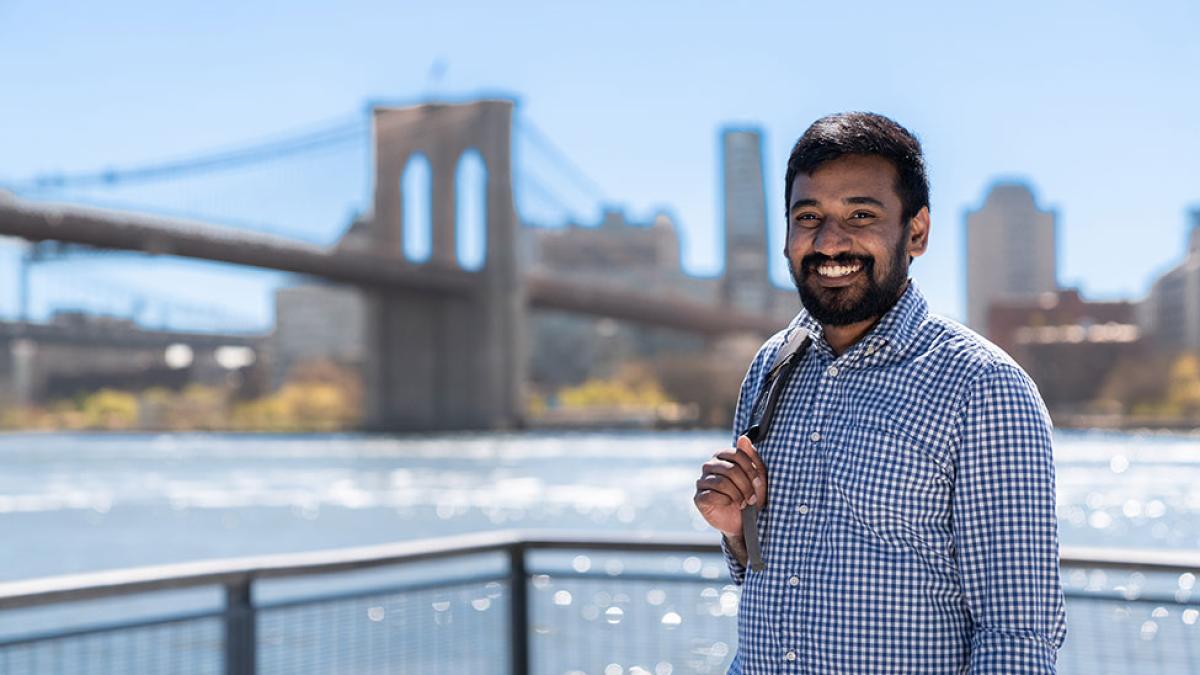
Our healthcare industry is complex and rapidly evolving. Every day, hospitals, clinics, pharmaceutical companies, health insurance providers, and medical device manufacturers strive to provide effective and equitable healthcare and service. As the system grows in scale and new challenges arise, the need for skilled leaders who can drive communication, collaboration, and innovation has never been greater.
Whether in healthcare delivery, insurance, or biotechnology, every organization needs professionals who combine managerial expertise with a deep understanding of healthcare. You can gain that expertise through a Master of Public Health (MPH) or a Master of Business Administration (MBA) with a specialization in areas related to healthcare. Each pathway offers distinct advantages and can position you for success in leadership roles across healthcare and public health.
Which is the right fit for your career aspirations? Read on to explore how MBA and MPH degrees connect to key opportunities in the field—from public health leadership to healthcare management and emerging health technologies.
What is an MPH?
A Master of Public Health (MPH) is a graduate-level professional degree designed for individuals who want to make a measurable impact on the health of communities and populations. Unlike degrees that focus on individual patient care, the MPH focuses on the health of populations, emphasizing the social, political, economic, and environmental factors that influence public health. Public health professionals use this knowledge to design interventions that reduce health inequities and improve population health.
Benefits of an MPH
MPH programs provide comprehensive foundations in public health, covering key areas such as epidemiology, biostatistics, health policy, environmental health, and health promotion. Students gain a broad understanding of public health systems and the specialized skills needed to address today’s most pressing health challenges.
The MPH degree builds the skills to design, implement, and evaluate programs that improve population health at local, national, and global levels. Graduates of MPH programs are prepared to take on leadership and specialized roles across state and local public health agencies, the private sector, nonprofit organizations, healthcare systems, government departments, and international health organizations.
Duration of Study
A full-time MPH program typically takes two years to complete. However, for students looking to advance their careers more quickly, accelerated programs may be completed in as little as 12–18 months.
Specializations
Many MPH programs allow students to tailor their studies to specific areas of interest. Common specializations include:
- Community and global health: An examination of historical issues, theories, and social determinants of health to build a better understanding of how to promote health equity and social justice among diverse populations.
- Health policy and management: The focus on how healthcare systems, organizations, and policies work together to deliver services and improve population health, with an emphasis on leadership and effective program management.
- Biostatistics and epidemiology: The use of data analysis and research methods to study patterns, causes, and outcomes of diseases to help public health professionals make evidence-based decisions.
- Clinical research administration: This area prepares graduates to oversee clinical trials and research programs, ensuring they meet regulatory, ethical, and financial standards while advancing new treatments.
- Environmental health and management: This area examines how environmental factors such as air, water, food, and workplace conditions affect health, and develops strategies to reduce risks and promote safer communities.
What is an MBA?
A Master of Business Administration (MBA) is a graduate-level degree that provides broad training in business management, strategy, finance, marketing, analytics, and operations. It is for professionals who want to lead organizations, solve complex business challenges, and drive growth and innovation.
MBA programs provide instruction on the core areas of business, which often include finance, accounting, marketing, human resources, entrepreneurship, and operations, with a focus on developing leadership and decision-making skills. For those interested in healthcare, a specialization or focus on management and finance can build the skills to help make patient care more efficient by expanding access to services, innovating systems and processes, and strengthening community engagement.
Duration of Study
A traditional full-time MBA program typically takes two years to complete. For students seeking to advance their careers more quickly, accelerated MBA options can be completed in 12–18 months.
Specializations
In addition to the general MBA curriculum, students can tailor their studies by choosing a concentration. Common specializations that can apply to healthcare include:
- Healthcare finance and marketing: This area prepares students to manage the financial performance of healthcare organizations while developing strategic, data-driven marketing approaches that improve patient engagement, service delivery, and competitive positioning in the healthcare market.
- Corporate financial management: A specialization in corporate finance focuses on prioritizing budgeting, investment, and resource allocation in healthcare organizations to maximize efficiency, sustainability, and growth.
- Human resources management: This specialization emphasizes talent recruitment, staff development, and workplace policies to build effective healthcare teams and improve organizational performance.
Differences Between an MPH vs and MBA Program
While both the Master of Public Health and Master of Business Administration prepare students for leadership roles, the focus, coursework, and career pathways for each differ significantly. Understanding these distinctions can help you decide which program best supports your goals.
MPH Coursework
The MPH is designed specifically for students committed to improving community and population health. Coursework emphasizes the social, political, economic, and environmental determinants of health and builds specialized expertise in research, analysis, and program planning and evaluation.
Courses can include:
- Epidemiology
- Biostatistics
- Environmental health
- Leadership and management
- Public health research methods
- Health systems and policy
MPH graduates strengthen their skills in quantitative analysis, public health research, and population health strategy. They are trained to design, implement, and evaluate programs that improve the health of entire communities. Because the degree is highly specialized, it is most effective for professionals already working in, or committed to, careers in public health.
MBA Coursework
The MBA is centered on business administration and management, equipping students with the leadership, financial, and strategic skills needed to oversee organizations. For those interested in healthcare, an MBA with a concentration in healthcare combines traditional business training with industry-specific knowledge.
Courses can include:
- Business ethics
- Business leadership
- Data science and analysis
- Financial accounting
- Micro- and macroeconomics
- Operations management
MBA students gain organizational leadership, financial acumen, and decision-making abilities that are broadly applicable across industries. This flexibility makes the MBA a strong choice for professionals who may want to pivot between healthcare and other sectors. Within healthcare, an MBA prepares graduates to manage hospitals, health systems, or biotechnology firms, with an emphasis on efficiency, strategy, and growth.
Prior Experience (Career & Academic)
As a master’s level degree, MPH programs may require a science or health-related undergraduate degree, though Pace University's MPH program only requires an undergraduate cumulative GPA of 3.0. Acceptance into a program will also depend on a personal statement, which details relevant experiences from your background and explains your motivation for studying public health.
Depending on the program, admission requirements can include:
- A bachelor’s degree from an accredited program; a major in biology, public health, sociology, psychology, or other health-related fields may be preferred
- Previous coursework in math, statistics, biology, or social sciences
- Relevant experience (1-3 years) in healthcare, public health, social work, or community outreach
- Some programs may also require a GRE score or an English proficiency exam if applicable
MBA programs may require either a bachelor’s degree from an accredited university or a detailed work history in management, along with submitted Graduate Management Admission Test (GMAT) or GRE scores. Acceptance into a program will also depend on a personal statement, which details your work background and explains your goals for entering the program.
Depending on the program, admission requirements can include:
- A bachelor’s degree from an accredited program; business-related degrees may be preferred but are not mandatory
- Strong academic performance with a competitive GPA
- 2-5 years of professional experience, leadership roles, and team management are a plus
- Some may require GMAT or GRE scores or an English proficiency exam, if applicable
Prospective MPH Careers
An MPH is designed for those who are committed to being public health leaders in healthcare organizations, agencies, and systems. Graduates often work alongside hospital staff, physicians, and insurance providers to improve health outcomes at the community or population level.
Common work settings include:
- Healthcare systems and hospitals
- Government agencies such as state and local health departments and federal health agencies
- Nonprofit organizations, NGOs, and international organizations focused on global health or community health initiatives
- Private-sector companies that address the health and wellness of populations
- Research institutions and universities
Possible career paths for MPH Graduates
All salary estimates were sourced from Glassdoor in August 2025 and are based on positions in the New York Metropolitan area. Salary ranges are determined by level of qualification, years of experience, and additional degrees or certifications.
- Health Policy Director: Develops, analyzes, and advises on policies and legislative strategies that shape healthcare systems, working with government agencies, stakeholders, and leadership to improve health outcomes and advance organizational or public priorities.
- Required Skills: Policy analysis and development, understanding of healthcare systems and legislation, data interpretation, strategic planning and advocacy, stakeholder engagement
- Estimated Salary: $129,000 to $240,000
- Healthcare Administrator/Health Services Manager: Oversees the operations of a hospital, clinic, or public health agency, ensuring compliance with regulations and developing policies to improve care.
- Required Skills: Healthcare operations management, regulatory and compliance expertise, financial and budget management, strategic planning and policy development
- Estimated Salary: $145,000 to $232,000
- Health Equity Analyst: Develops and implements policies and procedures to improve health equity and reduce health disparities within a health plan or community organization.
- Required Skills: Data analysis and interpretation, knowledge of public health and health equity frameworks, cultural competence and inclusive practice
- Estimated Salary: $135,000 to $205,000
- Epidemiologist: Investigates disease outbreaks and long-term health trends, using data to guide prevention strategies and inform public health policy.
- Required Skills: Data analysis, biostatistics, research methods, critical thinking, communication
- Estimated Salary Range: $70,000 to $124,000
- Public Health Analyst/Policy Advisor: Develops, evaluates, and advises on policies to improve healthcare access, reduce health disparities, and strengthen public health systems.
- Required Skills: Policy analysis, writing, data interpretation, public speaking, stakeholder engagement
- Estimated Salary: $86,000 to $160,000
- Global Health Specialist: Collaborates with international organizations to address pressing health challenges in low-resource or underserved communities.
- Required Skills: Cross-cultural communication, program design, global health policy, adaptability, foreign language (often preferred)
- Estimated Salary: $64,000 to $105,000
- Community Health Program Manager: Oversees health initiatives at the local level, managing programs that promote wellness and address community-specific needs.
- Required Skills: Program management, leadership, budgeting, community outreach, personnel evaluation
- Estimated Salary: $65,000 to $93,000
- Environmental Health Scientist: Studies the impact of environmental hazards, such as air, water, food, and workplace exposures, on public health and recommends interventions.
- Required Skills: Environmental science, data collection, risk assessment, lab analysis, regulatory knowledge
- Estimated Salary: $65,000 to $107,000
- Health Educator or Communication Specialist: Designs and delivers campaigns that encourage healthy behaviors and improve public awareness of health issues.
- Required Skills: Public speaking, content creation, cultural competency, marketing, health literacy
- Estimated Salary: $55,000 to $89,000
- Quality Improvement Specialist: Works to assess and improve the quality of patient care and services within a healthcare organization.
- Required Skills: Quality improvement methodologies, data collection, performance measurement, problem-solving and root cause analysis
- Estimated Salary: $64,000 to $108,000
| Job title | Required skills | Salary range |
|---|---|---|
| Health Policy Director | Policy analysis and development, understanding of healthcare systems and legislation, data interpretation, strategic planning and advocacy, stakeholder engagement | $129,000 to $240,000 |
| Healthcare Administrator/ Health Services Manager | Data analysis and interpretation, knowledge of public health and health equity frameworks, cultural competence and inclusive practice | $145,000 to $232,000 |
| Health Equity Analyst | Data analysis and interpretation, knowledge of public health and health equity frameworks, cultural competence and inclusive practice | $135,000 to $205,000 |
| Epidemiologist | Data analysis, biostatistics, research methods, critical thinking, communication | $70,000 to $124,000 |
Public Health Analyst/ Policy Advisor | Policy analysis, writing, data interpretation, public speaking, stakeholder engagement | $86,000 to $160,000 |
| Global Health Specialist | Cross-cultural communication, program design, global health policy, adaptability, foreign language | $64,000 to $105,000 |
| Community Health Program Manager | Program management, leadership, budgeting, community outreach, personnel evaluation | $65,000 to $93,000 |
| Environmental Health Scientist | Environmental science, data collection, risk assessment, lab analysis, regulatory knowledge | $65,000 to $107,000 |
| Health Educator or Communication Specialist | Public speaking, content creation, cultural competency, marketing, health literacy | $55,000 to $89,000 |
| Quality Improvement Specialist | Quality improvement methodologies, data collection, performance measurement, problem-solving and root cause analysis | $64,000 to $108,000 |
Prospective MBA Careers
An MBA is best suited for those seeking leadership, management, and administrative roles. While many graduates pursue careers in healthcare organizations, the degree also provides flexibility to work across industries—making it a strong option for professionals who want broader career mobility.
Common work settings include:
- Hospitals and healthcare systems
- Private healthcare providers and insurance companies
- Biotechnology and pharmaceutical firms
- Consulting firms such as McKinsey & Company or Deloitte
- Non-healthcare industries, including finance, technology, and consumer goods
Possible health-related career paths for MBA graduates
- Healthcare Administrator: Manages the daily operations of hospitals, clinics, or nursing facilities, ensuring quality care, regulatory compliance, and financial sustainability.
- Skills: Leadership, budgeting, regulatory knowledge, strategic planning, communication
- Estimated Salary: $145,000 to $234,000
- Healthcare Consultant: Works with healthcare organizations to improve efficiency, reduce costs, and implement new technologies or processes.
- Skills: Data analysis, problem-solving, project management, business strategy, client relations
- Estimated Salary: $129,000 to $222,000
- Pharmaceutical or Biotech Manager: Oversees teams in areas like product development, clinical trials, marketing, or operations to bring new therapies to market.
- Skills: Life sciences knowledge, regulatory compliance, leadership, marketing strategy, cross-functional coordination
- Estimated Salary: $83,000 to $155,000
- Health Insurance Executive: Designs and manages insurance plans, analyzes risk, and develops policies that balance cost, coverage, and regulatory requirements.
- Skills: Actuarial analysis, healthcare policy, negotiation, financial modeling, decision-making
- Estimated Salary: $94,000 to $175,000
- Healthcare Startup Founder/Leader: Builds and grows innovative companies in areas like healthcare technology, telemedicine, or medical devices, balancing vision with business execution.
- Skills: Entrepreneurship, fundraising, innovation, networking, adaptability, leadership
- Estimated Salary: $134,000 to $250,000
- Chief Executive Officer (CEO) or Chief Operating Officer (COO): Provides high-level leadership, setting strategy and managing operations for healthcare organizations to ensure long-term growth and impact.
- Skills: Executive leadership, organizational strategy, financial oversight, stakeholder management, decision-making
- Estimated Salary: $261,000 to $486,000
| Job title | Required skills | Salary range |
|---|---|---|
| Healthcare Administrator | Leadership, budgeting, regulatory knowledge, strategic planning, communication | $145,000 to $234,000 |
| Healthcare Consultant | Data analysis, problem-solving, project management, business strategy, client relations | $129,000 to $222,000 |
Pharmaceutical or Biotech Manager | Life sciences knowledge, regulatory compliance, leadership, marketing strategy, cross-functional coordination | $83,000 to $155,000 |
| Health Insurance Executive | Actuarial analysis, healthcare policy, negotiation, financial modeling, decision-making | $94,000 to $175,000 |
| Healthcare Startup Founder/Leader | Entrepreneurship, fundraising, innovation, networking, adaptability, leadership | $134,000 to $250,000 |
| Chief Executive Officer (CEO) or Chief Operating Officer (COO) | Executive leadership, organizational strategy, financial oversight, stakeholder management, decision-making | $261,000 to $486,000 |
How an MBA and MPH Compare
| MPH Vs. MBA | ||
|---|---|---|
| Master of Public Health | MBA (Healthcare Focus) | |
| Primary Emphasis | Population health, policy, prevention, health systems | Business administration, leadership, organizational strategy |
| Skill Development | Epidemiology, biostatistics, environmental health, program planning | Finance, accounting, data analytics, strategy, leadership |
| Career Paths | Epidemiologist, public health officer, research roles | Healthcare executive, consultant, operations manager |
| Flexibility | More specialized, fewer crossover opportunities | Highly transferable across industries |
| Coursework | Public health systems, stats, environmental health, communication | Core MBA plus healthcare electives |
| Admissions | May favor science background; moderately competitive | Often highly competitive, varied applicants |
Despite their differences, both programs emphasize leadership, critical thinking, and strong analytical skills. Whether improving community health outcomes (MPH) or driving organizational performance (MBA), graduates with either degree are positioned to make an impact as forward-thinking leaders.
How to Choose Between and MPH and an MBA
Choosing between an MPH and an MBA comes down to your professional goals, the skills you want to build, and the environment in which you see yourself working. Both degrees are valuable, but they prepare you for very different paths. Take the time to consider the following:
1. What do you want to study?
- MPH: Focuses on public health programs, management issues, and research. You’ll study epidemiology, health policy, biostatistics, and community health to understand and address the factors that shape population health.
- MBA: Focuses on business fundamentals such as management, finance, accounting, and strategy. You’ll learn how to run organizations, analyze financial performance, and make decisions that drive growth.
2. What careers interest you?
- MPH careers: Public health analyst, health policy advisor, community health manager, or epidemiologist. These roles are often within government agencies, NGOs, or healthcare organizations, and they focus on improving public health outcomes.
- MBA careers: Business consultant, marketing manager, financial analyst, or hospital administrator. These roles span healthcare, finance, consulting, technology, and beyond, making the MBA more flexible across industries.
3. What work environment do you prefer?
- MPH environments: Health departments, healthcare systems, hospitals, international organizations, and nonprofits focused on health policy, education, or research. Ideal for those passionate about helping communities and influencing policy.
- MBA environments: Hospitals, consulting firms, biotech companies, or corporate offices. Best for those motivated by organizational leadership, business management, and strategy.
4. What do you want beyond academics?
Think about whether you want to build specific knowledge, expand your skills, grow your professional network, or all three. Networking opportunities may depend more on specific program formats and location than the degree itself.
Pace University’s location in the heart of New York City provides our students with direct access to some of the largest and most distinguished healthcare facilities in the country, as well as many of the Fortune 500 companies established within steps of campus.
Serving the Public Health With Pace
Both Pace’s MBA and MPH degrees offer rewarding paths for graduates, each tailored to distinct professional goals. An MPH is ideal for those dedicated to improving health outcomes and addressing public health challenges, while our MBA program prepares leaders to shape policy, manage resources, and drive change in your sector of choice.
If you’re ready to take the next step, explore the MBA and MPH programs at Pace University, where you’ll build the skills, connections, and experience needed to make a meaningful impact in your field. Reach out today for personalized guidance on how Pace can support your journey.
FAQ
What is a better degree option, an MPH or an MBA?
The answer depends on your career goals. An MPH is better if you want to focus on public health, research, and population health improvement, while an MBA is ideal if you aim to manage finances or work in consulting. Either degree can lead to management or leadership positions in healthcare organizations, and some professionals pursue both to combine business leadership with public health expertise.
Which degree pays more, an MBA or an MPH?
On average, MBA degrees tend to lead to higher-paying executive or consulting roles compared to MPH graduates. However, MPH careers offer competitive salaries, particularly in epidemiology, policy, and global health, and often prioritize mission-driven impact over compensation. Private sector opportunities can provide higher long-term compensation. An MPH paired with a clinical degree is an especially valuable combination that can accelerate movement into leadership and management roles in healthcare.
Is an MBA valuable in healthcare?
Yes. An MBA provides leadership, financial, and strategic management skills that are highly sought after in hospitals, healthcare systems, insurance, biotech, and health startups. It’s especially valuable if you want to advance into executive roles, manage operations, or drive innovation in the healthcare industry.
Pace Haub Law Faculty Participate in 2026 AALS Annual Meeting
Faculty and leadership from the Elisabeth Haub School of Law at Pace University participated in the American Association of Law Schools (AALS) Annual Meeting, held January 6–9, 2026, in New Orleans, Louisiana.
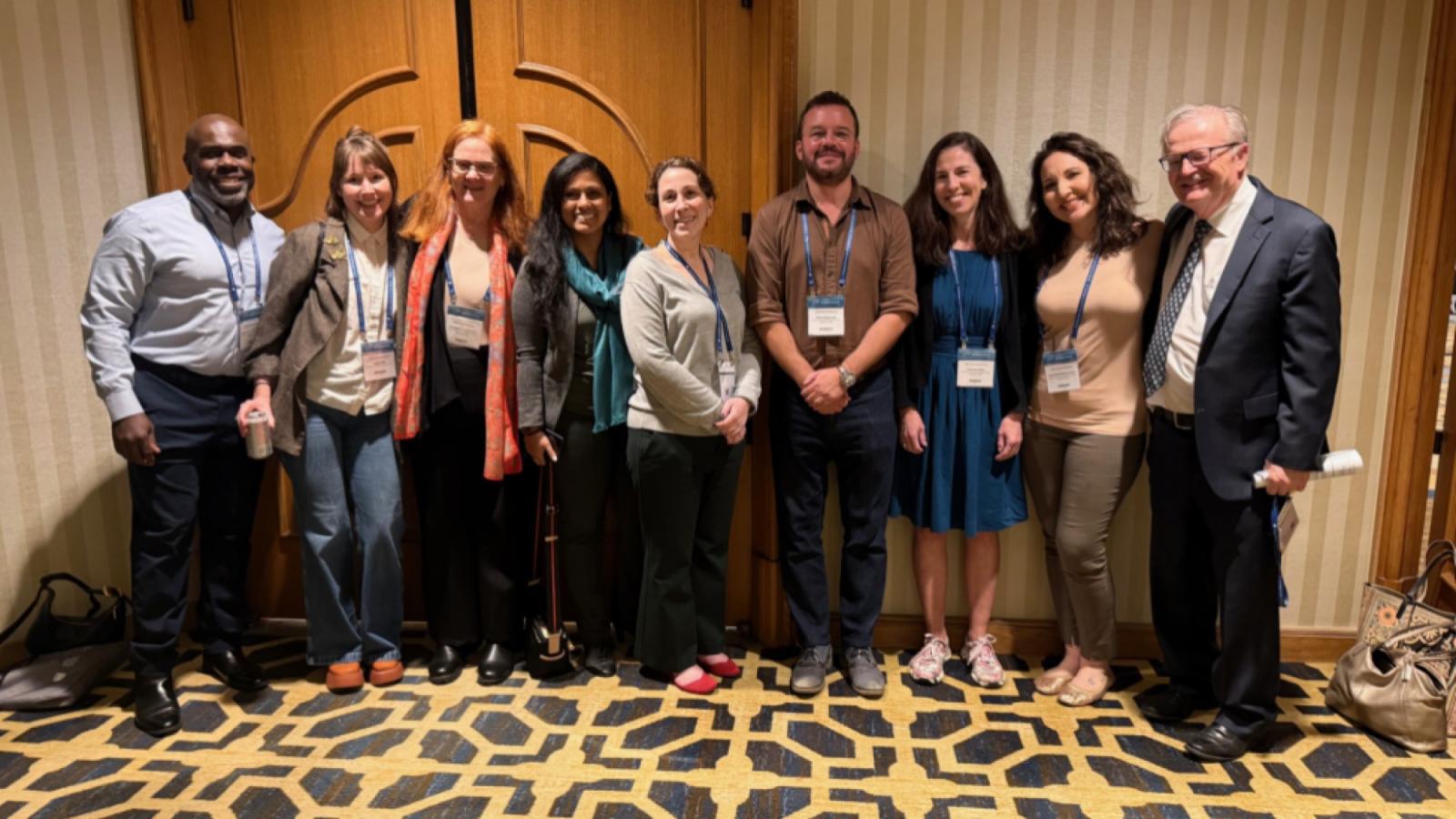
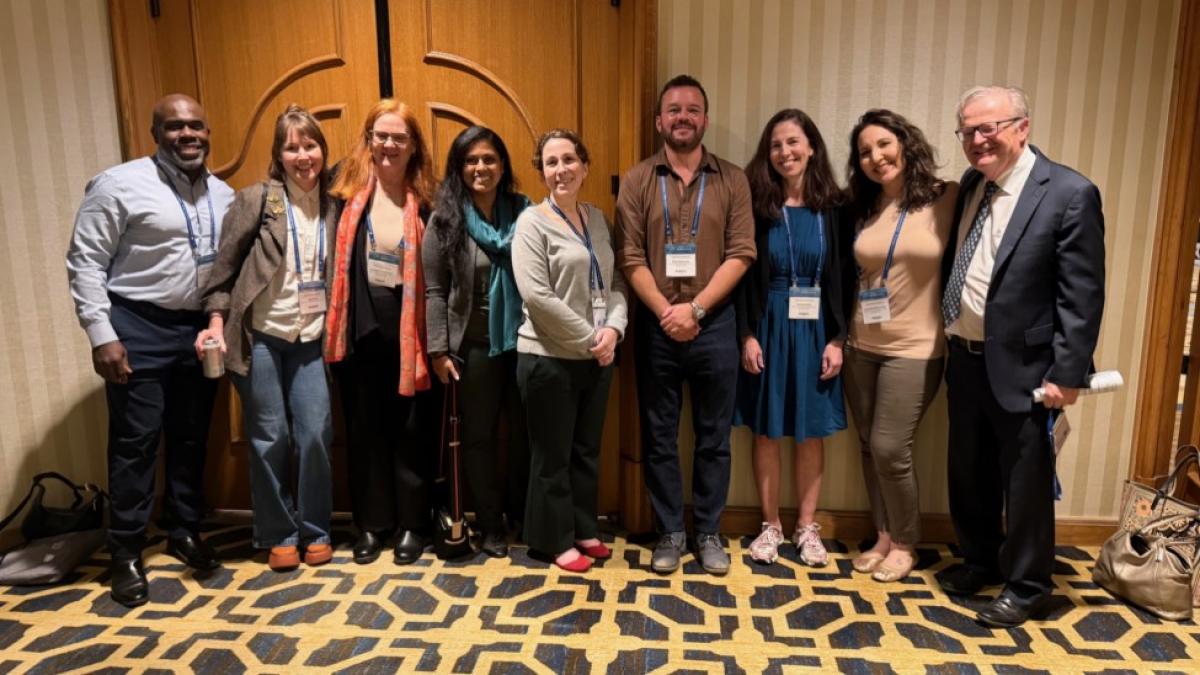
Faculty and leadership from the Elisabeth Haub School of Law at Pace University participated in the American Association of Law Schools (AALS) Annual Meeting, held January 6–9, 2026, in New Orleans, Louisiana. Centered on the theme “Impact. Excellence. Resilience. The Enduring Contributions of Legal Education,” the conference brought together legal educators from across the country for the largest convening of law schools in the United States. Through panels, workshops, and section meetings, the Annual Meeting serves as a critical forum for sharing scholarship, shaping national conversations on legal education, and fostering cross-institutional collaboration on emerging legal and policy challenges at a time of significant social, technological, and regulatory change.
Several Pace Haub Law faculty presented their scholarship and represented as leaders and organizers at the conference, underscoring the school’s national engagement and leadership within AALS sections and committees.
Professor Bridget J. Crawford, currently serving as Secretary of the AALS Section on Aging and the Law, helped coordinate the section’s program, “Aging with Dignity: Legal Challenges to Federal Cuts and Their Impact on Vulnerable Older Adults.” She also presented her scholarship at multiple sessions, including “Working the Unrecognized Shift: Informal Labor, Tax Compliance, and the Structural Limits of Employee Benefits” at the Section on Employee Benefits & Executive Compensation, and “Privacy, Personhood, and the Trusts of Tomorrow: Embryos and Emerging Fiduciary Challenges” at the Section on Trusts & Estates annual program.
Professor Lauren Roth, Chair Elect of the AALS Section on Law, Medicine and Health Care and a member of the Executive Committee of the Section on Employee Benefits & Executive Compensation, played a significant role in coordinating Annual Meeting programming for both sections. She presented on Trump 2.0’s Impact on Employee Benefits, participated in the Aging and the Law panel on federal cuts affecting older adults, and moderated a works-in-progress session focused on employee benefits law.
Professor Jessica Miles served as the Pace Haub Law delegate to the AALS House of Representatives Meeting.
Professor Achinthi Vithanage, Executive Director of Environmental Law Programs, delivered a presentation titled “It Takes Two to Transition: Utilizing AI-driven Digital Twins in the Just Transition” as part of the flagship panel for the Natural Resources and Energy Law Committee. She also participated in the annual gathering of Environmental Law Center directors and joined the Environmental Law Field Trip to St. James Parish with Rise St. James.
Visiting Assistant Professor Sara Gonzalez-Rothi participated in the Works-in-Progress session for Environment, Energy, and Natural Resources, workshopping a paper applying institutional design principles to the advancement of marine protected areas in the United States.
Adjunct Professor Danielle M. Kocal was recognized as the newly elected Secretary of the AALS Section on Balance and Well-Being in Legal Education. She is also a member of the Section on Academic Support.
Accounting Scholarships from Big Four Accounting Firms
Did you know that three of the Big Four accounting firms have scholarship programs exclusive to Pace Students? Learn about the undergraduate and graduate financial aid programs offered by Deloitte, Ernst & Young (EY), and KPMG, why these scholarships can be a complete game-changer for your career, and how you can stand out from other applicants.


Scholarships offer incredible opportunities for accounting students who are looking for financial assistance. They also offer a chance to showcase your skills and experience and connect with some of the most significant networking opportunities in the accounting field.
That’s exactly what many of the accounting graduates of the Lubin School of Business have experienced, courtesy of our exclusive partnerships with Deloitte, Ernst & Young, and Klynveld Peat Marwick Goerdeler (KPMG), three of the world’s “Big 4” accounting firms and the most respected names in the profession.
We’re proud to offer these incredible opportunities to both our undergraduate and graduate students. In this post, we’ll explain these prestigious scholarship options and how they help you save on tuition, build connections with global accounting leaders, and launch your accounting career.
Who Are the Big Four Accounting Firms?
The Big Four—Deloitte, Ernst & Young (EY), PricewaterhouseCoopers (PwC), and KPMG—are the largest global accounting and professional services networks. They provide audit and assurance, consulting, financial advisory, risk management, and tax services, plus support for mergers, acquisitions, and corporate restructuring. Together, these firms audit the financial statements of most publicly held companies.
- Deloitte: Deloitte is the largest of the Big Four and is considered the top firm in the United States and globally. In its 2025 fiscal year (FY), Deloitte had more than 470,000 employees and reported $70.5 billion in annual revenue—numbers that reflect its unmatched scale, reach, and industry influence.
- PwC: PwC is a leader in the global advisory market, operating in more than 155 countries. In FY 2025, the firm reported $55.3 billion in revenue and expanded its workforce to more than 364,000 employees. The second largest of the Big Four, PwC’s continued growth signals strong demand for accountants with skills in audit, advisory, and technology-driven services.
- EY: EY is the third-largest firm, focusing on business transformation driven by people, technology, and innovation. For FY 2025, EY reported $53.2 billion in revenue and employs approximately 400,000 professionals across more than 150 countries.
- KPMG: KPMG rounds out the Big Four and operates in more than 140 countries, which includes offices in nearly every U.S. state. Known for its tax, audit, and advisory work, the firm also has deep expertise in digital transformation, performance improvement, and ESG. KPMG generated $38.4 billion in revenue in 2024 and employs more than 275,000 people worldwide.
None of the Big Four is a single, unified company. Each is a network of independently owned and managed firms that collaborate under a shared brand and global quality framework.
Benefits for Students: Why the Big Four Matter
For emerging and aspiring accountants, any experience with a Big Four firm—whether it's through networking, internships, or early-career roles—can be career-defining. These firms are known for rigorous selection processes, high performance expectations, and unmatched exposure to complex, real-world work. As a result, even short-term involvement with a Big Four firm can strengthen a résumé and signal to future employers that you have the skills, professionalism, and drive the industry demands.
The Big Four offer multiple entry points for students, including summer internships, work-experience pipelines for those from underrepresented backgrounds, and university-aligned placements and scholarship programs. Many of these programs will help you build professional networks early and give you access to hands-on learning to showcase your skills and talent to prospective employers (including any of the Big Four firms themselves).
Students at the Lubin School of Business benefit from distinctive partnerships with Big Four firms. To date, Lubin accounting graduates have secured 115 partner and 70 senior management positions across all of the Big Four firms. Many of these partners and senior managers got their start through one of Lubin’s three exclusive scholarship programs.
First, the Deloitte Foundation funds a scholarship program that covers 100% of tuition for select students entering Pace’s graduate accounting programs. We’re also honored that EY and KPMG each offer scholarships of up to $5,000 for eligible undergraduate accounting majors in their third, fourth, or fifth year, providing crucial support to Pace students.
Big Four Firm-Sponsored Awards for Pace
Now that you know the types of scholarships available, here are the specific details of each financial award, including funding breakdowns, deadlines, and eligibility requirements.
Deloitte Foundation Accounting Scholars
The Deloitte Foundation Accounting Scholars Program collaborates with Pace University to attract top talent and expand access to the CPA profession. Together, the Deloitte Foundation and Pace provide up to ten full-tuition scholarships to qualified applicants pursuing a fifth-year master’s degree in accounting with a concentration in audit, advisory, or tax.
Recipients who are recognized as Deloitte Foundation Accounting Scholars receive full financial support for tuition and applicable academic fees during their final year of graduate study, provided they graduate by or before a specified deadline.
- Amount: 100% of tuition and academic fees, excluding books and living expenses, if students maintain a 3.0 or higher GPA for all semesters and upon graduation.
- Deadline: April 1, 2026
- Eligibility: Applicants must be currently enrolled in, or have completed, an undergraduate degree at an accredited U.S. college or university, hold a minimum cumulative GPA of 3.0 (on a 4.0 scale). Applicants must also be committed to a career in public accounting or taxation and to pursuing CPA licensure (not already licensed as a CPA) and demonstrate financial need by having a completed FAFSA on file.
- Benefits: Supports students pursuing a five-year accelerated master’s in tax or accounting with a focus on audit, advisory, or tax.
KPMG Fund for Excellence in Accounting
The Scholarship Fund for Excellence in Accounting Education is established by KPMG Partners and professionals to promote educational excellence in accounting at the Lubin School of Business' Department of Accountancy. The KPMG Fund provides scholarship awards of $5,000 each to outstanding students, consisting of $2,500 for the fall semester and $2,500 for the spring semester.
- Amount: $5,000 ($2,500 for the fall semester and $2,500 for the spring semester)
- Deadline: TBD for 2026
- Eligibility: Students must be U.S. citizens enrolled in the Lubin School of Business in a qualified accounting program and maintain a 3.30 GPA overall and in accounting at Pace University. Students must demonstrate involvement and leadership in either co-curricular activities at Pace or service organizations in their local community or high school.
- Benefits: The Scholarship Fund for Excellence in Accounting Education is granted annually and may be used for tuition and/or related costs. Recipients may receive this award for no more than three academic years, during their third, fourth, and/or fifth year of undergraduate study at Pace, as long as they remain eligible according to scholarship criteria. All award recipients must attend a fall dinner event, hosted by KMPG, to qualify for the scholarship.
EY Accounting Scholarships at Pace
The Ernst & Young Fund for Excellence in Accounting Education was established by Ernst & Young LLP to promote educational excellence in accounting at Pace University. The Fund will provide scholarship awards of $5,000 each to outstanding students, consisting of $2,500 for the fall semester and $2,500 for the spring semester.
- Amount: $5,000 ($2,500 for the fall semester and $2,500 for the spring semester)
- Deadline: May, annually
- Eligibility: Open to Lubin School of Business accounting students with a 3.30 GPA or higher, these awards recognize those who demonstrate strong leadership and active involvement in campus activities, community service, or high school organizations. Students must be enrolled full-time during both the Fall and Spring semesters. Students must be US citizens to be eligible for this scholarship.
- Benefits: The Ernst & Young Fund for Excellence in Accounting Education is granted annually and may be used for tuition and/or related costs. Students may receive this award for no more than three academic years, provided they remain eligible according to scholarship stipulations.
Additional Scholarships for Lubin Students at Pace University
If you’re interested in attending The Lubin School of Business and are in need of additional financial assistance, consider applying for these additional merit- and need-based awards.
- The Janetschek Professional Growth Fund provides financial support to qualified Lubin undergraduate and graduate students seeking business-related development beyond their academic programs. This may include skills training, credential preparation, certifications, and related co-curricular education and activities that develop professional competencies and complement their program of study.
- Graduation Awards for Lubin Undergraduate Students are available to Lubin undergraduate students who have filed for graduation with the Office of the Registrar and have a minimum 3.20 cumulative GPA. Qualifying students can be eligible for the Professional Management Award and the Alumni Association Award.
Ready to learn more about your financial aid opportunities? Review the Lubin School of Business’ Scholarships page.
Tips for Applying to Scholarships
The competition for these accounting scholarships can be high, so securing them takes strategy and preparation. Use these tips and tools to navigate the process and boost your chances of success.
- Start early and stay organized: Begin your application as soon as possible, such as in the fall or early winter, and treat the process like a professional project. Create a timeline, track requirements, and build in review periods to ensure you’re still on track. An early start gives you time to refine materials, request documentation, and avoid last-minute stress.
- Plan to highlight your academic rigor and professional potential: Maintain a strong GPA and showcase coursework or projects that reflect your analytical strengths. When thinking about who to ask for recommendations, choose supervisors, professors, or mentors who can speak to your integrity, work ethic, and attention to detail, all qualities which are highly valued in accounting.
- Demonstrate your initiative and fit: Show that you’ve researched both the accounting programs and the specific scholarship opportunities. Tailor each essay to discuss your goals, how the scholarship will support your professional trajectory, and why this program is the right place for you. Use your personal statement to demonstrate not just what you’ve achieved, but why you’re committed to advancing in the field.
- Review, refine, and validate every detail: Just as in accounting, accuracy matters. Double-check eligibility requirements, deadlines, and submission instructions. Proofread your essays and application materials carefully, and if possible, ask a trusted mentor to review them. A polished, error-free application signals professionalism and reinforces your credibility as an emerging accountant.
Pace’s New York City location gives accounting students direct access to the Big Four and other leading firms, connecting aspiring accountants like you to internships, mentorship, and real-world experience that launches careers. More than 1,900 Pace alumni now work at Big Four firms, including more than half of the Class of 2021 graduates with accounting-related degrees.
These scholarship programs advance Pace’s mission by expanding opportunity, supporting equity in the profession, and investing in the next generation of accounting leaders. Earning any of these accounting scholarships can be a game-changer for your accounting career, as they’ll help you build a powerful professional network—one you’ll carry with you long after graduation.
Learn more about each scholarship opportunity via the links in this post, or request information today if you need help in taking the next step.
Race Discrimination Still Infects Jury Trials
Professor Bennett L. Gershman of Pace Law School writes in Law.com on the enduring impact of racial discrimination in jury selection. In the op-ed “Race Discrimination Still Infects Jury Trials,” published in the New York Law Journal, Bennett L. Gershman examines how racial bias continues to shape capital jury trials and critiques courts’ willingness to excuse such practices, arguing that racial justice must not be sacrificed for procedural convenience.
